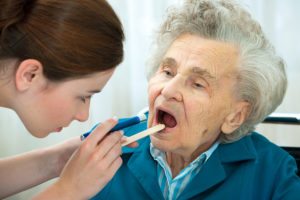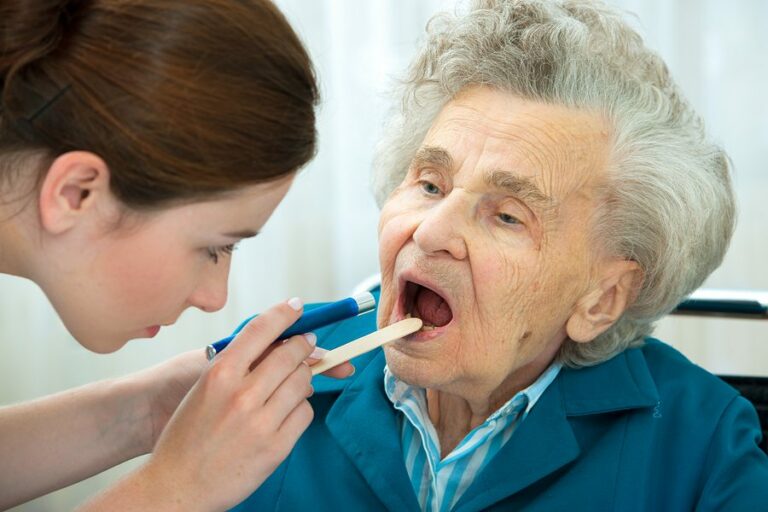
If your elderly loved one gets a diagnosis for a condition known as xerostomia, or dry mouth, you might be under the impression that it’s not very serious and you or the home care aide just need to encourage them to drink more water. However, dry mouth is much more serious than it sounds, and it can really have negative consequences to your elderly loved one’s health and wellness.
A Look at Dry Mouth.
People with dry mouth describe the feeling as a sticky, gritty feeling throughout the mouth because the body doesn’t produce enough saliva. Saliva plays an important role in washing food particles away from the teeth, breaking down chewed food, and lubricating the soft tissues in the mouth and throat. It helps to neutralize bacteria that can affect bad breath, gum disease and even tooth decay. Dry mouth is a serious condition that can affect how elderly people chew, eat and speak.
Harm from Dry Mouth.
Dry mouth can have a big impact on oral health for seniors. With dry mouth, elderly loved ones are at a greater risk for tooth decay. Not only do food particles and bacteria cling to the teeth without saliva, the gums can retract, exposing more of the tooth surface. For those elderly people that wear dentures, dry mouth can affect their fit and function. Cracked lips, mouth sores and dry throat are also the result of an overly dry mouth.
Another consequence from dry mouth is malnutrition, because eating is more difficult and can even be painful. When seniors reduce their caloric intake and avoid healthy foods, they can become malnourished. Finally, dry mouth can have an impact on a senior’s ability to speak or sing, which can have a big impact socially and on their self-esteem. Dry mouth is not a normal part of aging and is a red flag that something may be wrong with the elderly person.
Dry mouth may also be a sign that there is a hidden health issue that is a symptom of a more serious disease, such as sleep apnea, autoimmune disease, Parkinson’s Disease, anemia, diabetes or Sjogren’s Syndrome. Dry mouth can also complicate existing conditions like allergies, sleep apnea or adenoids.
Treating Dry Mouth.
Family caregivers should make an appointment with their loved one’s doctor if they suspect dry mouth, so the physician can identify the cause and outline a treatment. Often, dry mouth is just a side effect of medication, and the doctor can lower the dosage to alleviate symptoms. They can also prescribe medicine to stimulate salivary gland production.
At home, seniors can offset the effects of dry mouth by sipping water throughout the day, especially while eating. Family caregivers and home care assistants can supply them with mints or small candies to suck on, or they can chew gum to keep the mouth moist. Avoiding smoking and alcohol can also reduce the effects of dry mouth.
All in all, the sticky and gritty side effects of dry mouth are significant enough to prompt family caregivers to aid their loved ones in treating it properly before it leads to bigger problems.
If you or an aging loved one needs home care in Davis, CA, remember Senior Home Care Services. Call us at (916) 514-7006 for more information.
Source:
http://www.mayoclinic.org/diseases-conditions/dry-mouth/home/ovc-20318136
- Kitchen Tools That Make Eating Easier for Seniors - April 25, 2025
- Helping Seniors Reduce Health Anxiety - April 18, 2025
- Why Should Seniors Consider Adding Soy to Their Diets? - April 7, 2025


